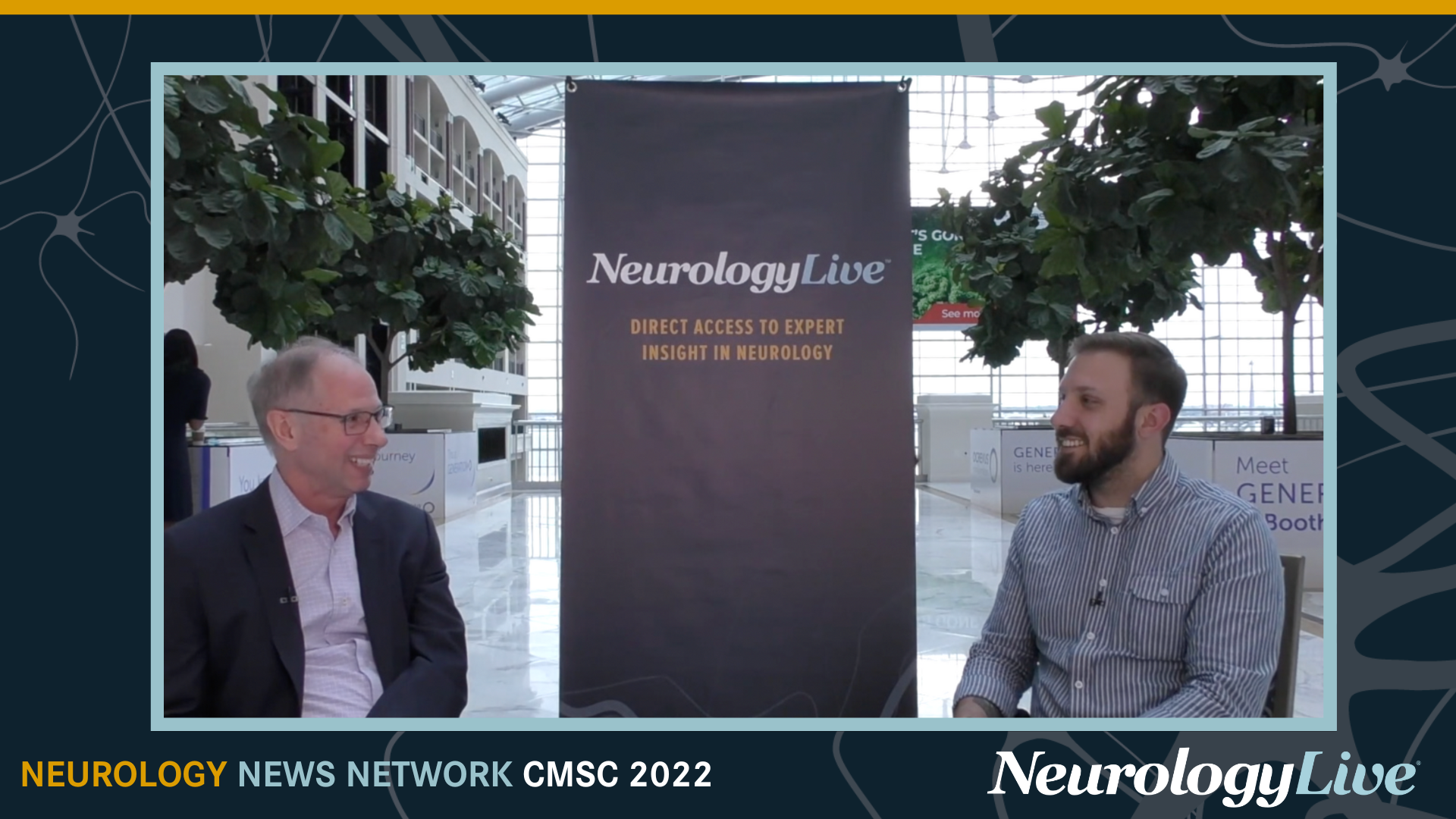
Final Thoughts and Takeaways on MS DMT Discontinuation

Robert Fox, MD, who presented the DISCO-MS study results at the CMSC 2022 Annual Meeting, offered his closing thoughts on the data and the take-home messaging for clinicians.
WATCH TIME: 4 minutes
For more coverage from CMSC 2022, click here . A transcript of the conversation is below.
Matt Hoffman: It would be interesting to see, especially now with some of the newer therapies that are in development that are showing potential, to see if maybe 20 years from now, we can look at it in the same way. Perhaps there is a chance that treatment discontinuation could work. I'm curious, what was the average disease duration for this group, and were patients generally on therapy for a long period of time?
Robert Fox, MD: They were. So, patients were older, of course, because that was the entry criteria. They had MS for a lot longer than an average patient population. Because this was a right-skewed and older patient group, they had higher disability as well. So, it is a different patient population than the average 35-year-old in the clinic. There are other trials going on in Europe right now that are looking at younger patient populations who have been stable on their MS therapy for a period of time—5, 7, or 8 years—and randomizing them to stopping therapy. So those trials will be important to give us a different demographic, a different patient population.
We are also following the DISCO-MS patients for a longer period of time, particularly the ones who didn't have active inflammation, to see if we follow them longer both does disease activity come back, as well as disability? Now we looked at disability progression and there was no difference in disability progression between those who stopped therapy and those who continue therapy, although their trial wasn't well powered to see a difference in that analysis.
Matt Hoffman: I know you’ve mentioned that there are obviously a couple of questions that this trial didn't answer. We are still analyzing some data. But what's the next question in line for you that you would like to see answered in relation to the area that we're looking at in the DISCO-MS trial
Robert Fox, MD: I think a next line [of questioning] would be more contemporary therapies, therapies that were approved more recently, and what happens with those patients if we stop them? Also, longer-term follow-up to see what happens with disability progression. As patients get older, relapses tend not to be the biggest problem for them. It's the gradual, insidious decline, or [in other words,] increase in disability, that is the bigger challenge for them. This study wasn't well powered to look at the difference, but at least the initial findings are that it doesn't impact disability progression.
Matt Hoffman: Any final notes, to put a bow on it? What's the takeaway for the community?
Robert Fox, MD: Well, I think the takeaway is that we can say we have a concrete estimate now, that in patients who are 55 years of age or older, who have been stable for 3 to 5 or more years on therapy, if they stopped their therapy, they have a 7% higher risk of having disease activity or relapse or MRI lesions. Now, to some patients and clinicians, that's too high of a risk. For others, they would say, “That's not much of a higher risk. I'm okay, stopping”. This doesn't guide treatment, so much as it is data to guide conversations regarding treatment decisions.
Matt Hoffman: Well, thanks so much for sitting down with me. I really appreciate it.
Transcript edited for clarity.
Newsletter
Keep your finger on the pulse of neurology—subscribe to NeurologyLive for expert interviews, new data, and breakthrough treatment updates.










